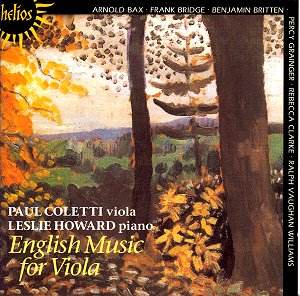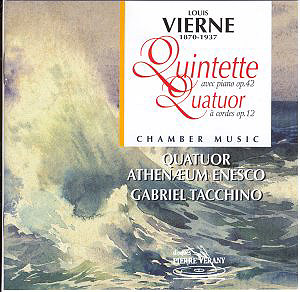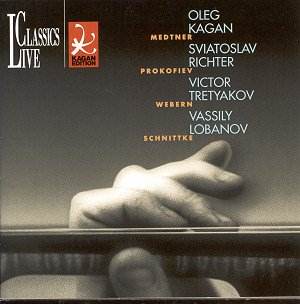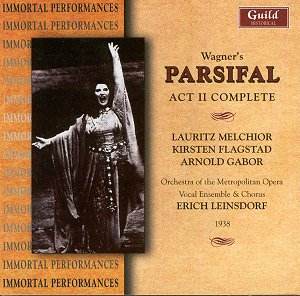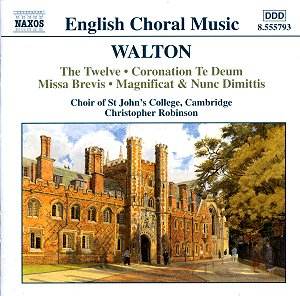 Composer: Sir William Walton (1902-1983)
Composer: Sir William Walton (1902-1983)
Works: Coronation Te Deum, Drop, drop slow tears, Magnificat and Nunc Dimittis, Where does the uttered music go?, Jubilate Deo, Touch her soft lips and part, The Death of Falstaff (organ solos), Cantico del Sole, The Twelve, Set me as a seal upon thine heart, Antiphon, Missa Brevis
Performers: Choir of St John’s College, Cambridge; Christopher Whitton (organ)
Recording: 10-12 July 2001, St John’s College Chapel, Cambridge
Label: NAXOS
Sir William Walton’s contributions to sacred music are often eclipsed by his orchestral and theatrical works, yet this recent recording from NAXOS shines a much-deserved light on his choral compositions. The collection presents an assortment of Walton’s choral pieces, extending from the jubilant “Coronation Te Deum” to the introspective “Missa Brevis,” showcasing the composer’s deft handling of choral textures and liturgical themes. The Choir of St John’s College, Cambridge, under the direction of Christopher Robinson, offers a commendable tribute to Walton, whose centenary in 2002 has prompted a resurgence of interest in his oeuvre.
The “Coronation Te Deum” opens the disc with a vibrant display of choral fervor, effectively capturing the essence of national celebration. Although the arrangement for organ and choir lacks the orchestral grandeur of the original, Christopher Whitton’s organ playing brings clarity and vigor to Walton’s intricate counterpoint. Whitton’s articulation of the rhythmic motifs is particularly commendable, allowing each phrase to resonate with the jubilation inherent in the text. The piece serves as a fitting prelude to the more intimate offerings that follow, such as “Drop, drop slow tears,” where the choir’s control of dynamics and phrasing reveals a profound sensitivity. Here, the nuanced shaping of the melodic line highlights Walton’s lyrical genius, with the choir demonstrating both technical precision and emotional depth.
The sound quality of this recording merits particular attention. Captured in the acoustically rich St John’s Chapel, the balance between choir and organ is expertly managed, allowing the choral harmonies to bloom without overwhelming the organ’s contribution. The NAXOS engineers have done an excellent job of presenting the full-bodied choral sound alongside the delicate solo passages, making this an exemplary recording from a technical standpoint. The inclusion of the organ solos from “The Death of Falstaff” provides a contrasting texture; while effective, they do not possess the same dramatic potency as the choral works, instead serving as a brief interlude that bridges the larger pieces.
Among the later works, “The Twelve” stands out as a significant achievement. Its originality and complexity are enhanced by the freshness of the Choir’s performance. The intricate interplay between the voices and the rhythmic vitality of the piece are rendered with clarity, demonstrating both the choir’s skill and Walton’s inventive choral writing. Similarly, the “Missa Brevis,” composed for Coventry Cathedral, is a revelation within this collection. Its accessible yet sophisticated treatment of the mass text reveals Walton’s ability to blend tradition with modernity, and the choir’s spirited interpretation underscores its liturgical purpose.
This recording serves as a valuable entry point into Walton’s sacred repertoire, illuminating lesser-known works with both enthusiasm and fidelity. The Choir of St John’s College, Cambridge, under Christopher Robinson’s direction, has delivered a performance that is both technically assured and deeply expressive. The thoughtful programming, coupled with the high-quality engineering from NAXOS, makes this disc an important addition to the catalogue of Walton’s choral music, inviting listeners to appreciate the richness and diversity of his sacred output. Walton’s music, often overshadowed by his more famous compositions, finds a vibrant voice here, reminding us of the composer’s significant place within the British choral tradition.
